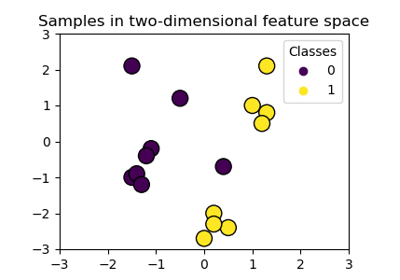sklearn.metrics.pairwise.cosine_similarity¶
- sklearn.metrics.pairwise.cosine_similarity(X, Y=None, dense_output=True)[source]¶
Compute cosine similarity between samples in X and Y.
Cosine similarity, or the cosine kernel, computes similarity as the normalized dot product of X and Y:
K(X, Y) = <X, Y> / (||X||*||Y||)
On L2-normalized data, this function is equivalent to linear_kernel.
Read more in the User Guide.
- Parameters:
- X{array-like, sparse matrix} of shape (n_samples_X, n_features)
Input data.
- Y{array-like, sparse matrix} of shape (n_samples_Y, n_features), default=None
Input data. If
None, the output will be the pairwise similarities between all samples inX.- dense_outputbool, default=True
Whether to return dense output even when the input is sparse. If
False, the output is sparse if both input arrays are sparse.New in version 0.17: parameter
dense_outputfor dense output.
- Returns:
- kernel matrixndarray of shape (n_samples_X, n_samples_Y)
Returns the cosine similarity between samples in X and Y.
Examples using sklearn.metrics.pairwise.cosine_similarity¶

Plot classification boundaries with different SVM Kernels